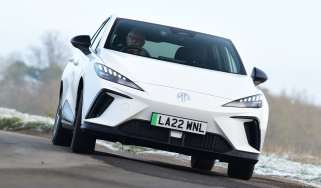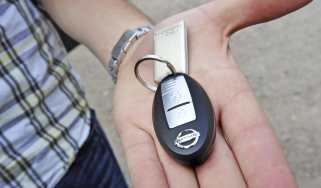Hyundai i30 Fastback review - MPG, CO2 and Running Costs
Standard engine options keep emissions and fuel consumption in check, while i30 N is acceptable given the performance

For a car of this size and a range that currently doesn’t include a diesel engine, the i30 Fastback offers impressive fuel consumption and CO2 performance. The smallest 1.0 T-GDi unit is inevitably the best performer in the range, with fuel economy as low as 47.1mpg combined under WLTP testing and 125g/km of CO2. The bigger 1.4-litre four cylinder engine offers useful extra power but it is quite close in respect of economy, with the version fitted with the seven-speed dual clutch DCT gearbox coming close to the 1.0 T-GDi at 46.3mpg combined and matching its 125g/km emissions figure. The worst-performing standard model is the 1.4-litre model with the manual gearbox which manages 45.6mpg and 132g/km of CO2, while the i30 N Fastback model is considerably less efficient with quoted WLTP figures of 35.3mpg combined and 178g/km emissions.
Insurance groups
Insurance rates for the i30 Fastback are competitive, with the SE Nav 1.0-litre model falling into group 8, and the most expensive 1.4-litre Premium SE model only in group 15. The high performance i30 N Fastback model is considerably higher at group 29, but this is relatively low for a car with this level of performance.
Depreciation
Hyundai has made solid progress in recent years of transforming its brand, taking it from being seen as offering low sticker prices and little else to one that still provides good value but that is able to compete on quality and ability too. This has helped improve the residual values of Hyundai products, although its products do still fall behind the best in class for residual values. The i30 Fastback has values edging close to 40 per cent, which is slightly better than the standard hatchback, but still a couple of per cent behind hatchback class leaders such as the VW Golf and Honda Civic.






